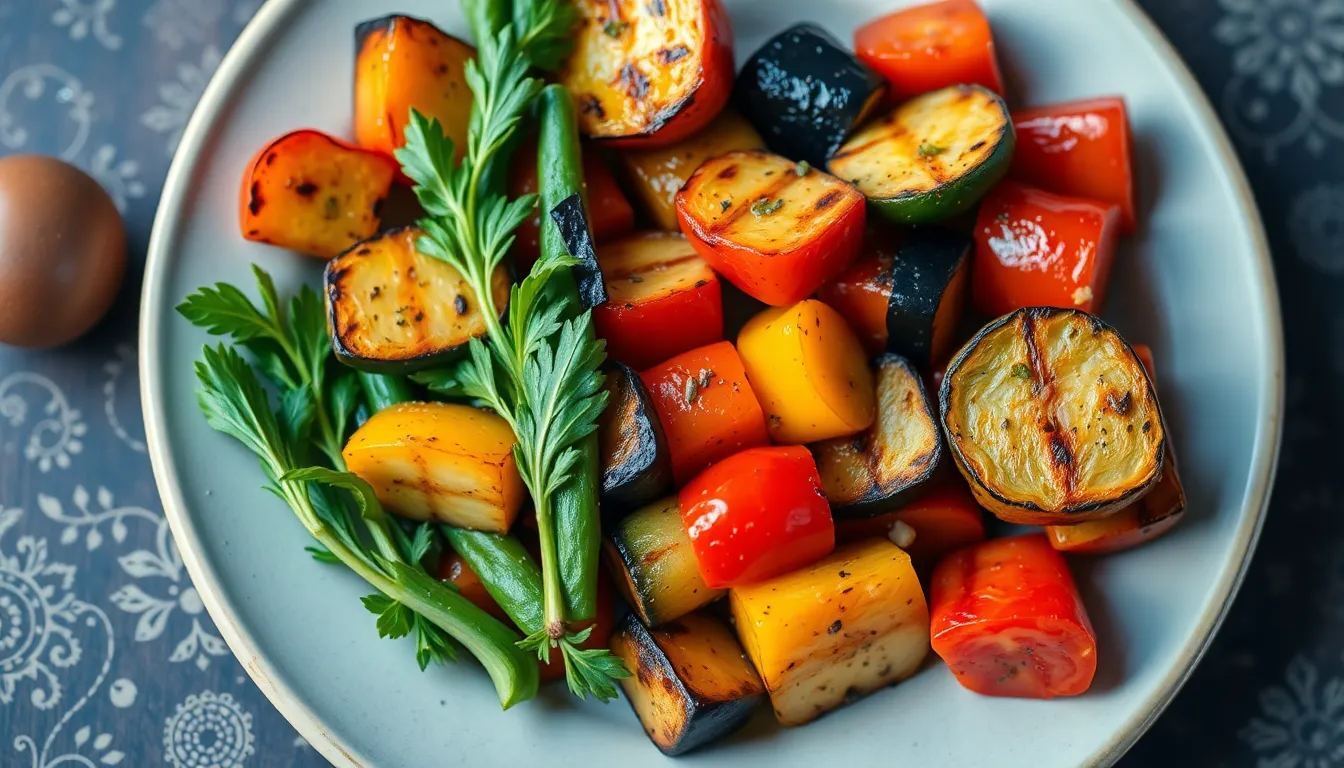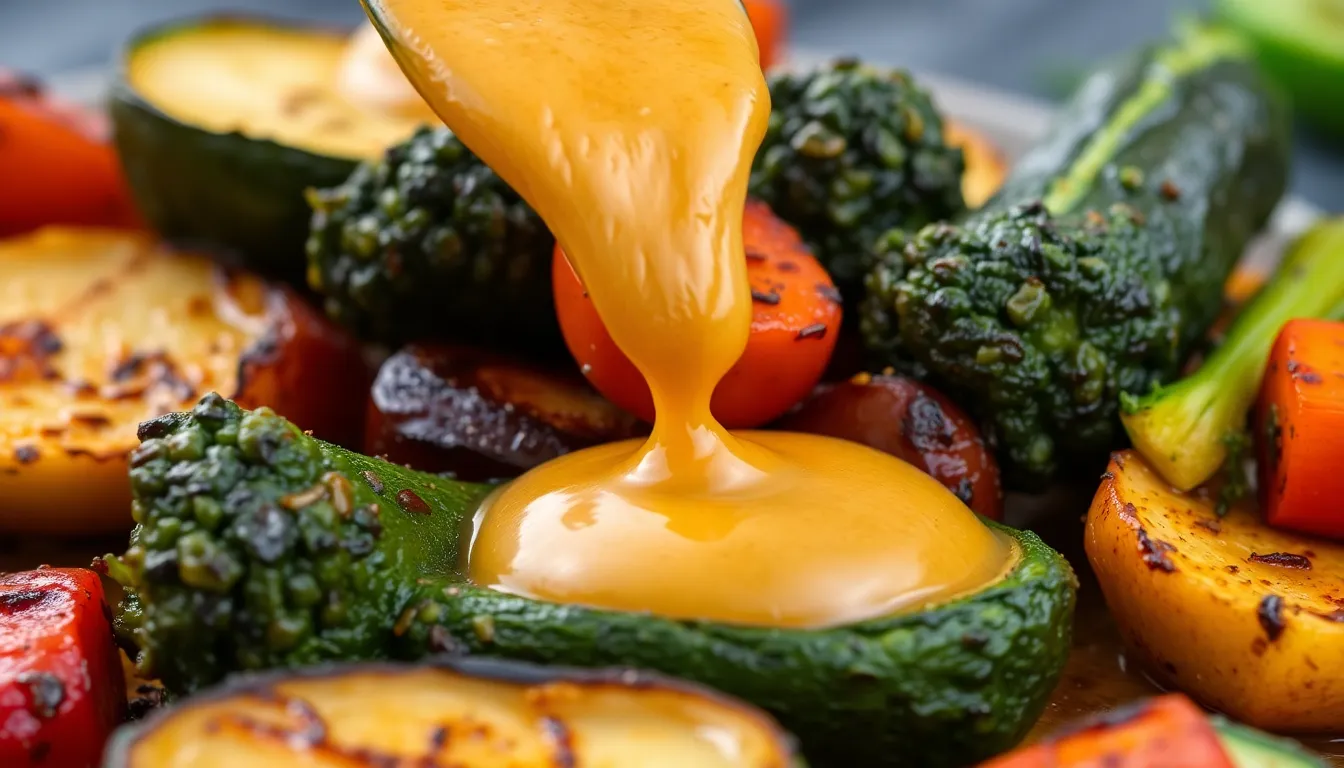Grilled Mediterranean Veggies: A Colorful Side Dish
Mediterranean cuisine is renowned for its vibrant flavors and fresh ingredients, particularly vegetables that are often the stars of the dish. Grilling is a key cooking method in this culinary tradition, enhancing the natural sweetness and richness of vegetables. In this article, we will explore the benefits of grilling, how to choose the right vegetables, prepare them, grilling techniques, serving suggestions, and even some delightful variations.
Section 1: Benefits of Grilling Vegetables
Grilling vegetables not only brings out their natural flavors but also offers a variety of health benefits that can enhance any meal. Here’s why you should consider incorporating grilled vegetables into your diet:
- Health benefits: Grilled vegetables retain nutrients better than some other cooking methods. They are low in calories and high in vitamins and minerals.
- Flavor enhancement: The grilling process caramelizes the sugars in vegetables, creating a smoky flavor that elevates dishes.
- Versatility: Grilled veggies can be used in salads, wraps, as sides, or even as toppings for pizzas and sandwiches.
Section 2: Choosing the Right Vegetables
Subsection 2.1: Best Vegetables for Grilling
When it comes to grilling, certain vegetables perform better than others. Here is a list of some of the best options:
- Bell Peppers
- Zucchini
- Eggplant
- Cherry Tomatoes
To make your selection easier, refer to the table below for a comparison of these vegetables:
| Vegetable | Color | Flavor Profile | Cooking Time (minutes) |
|---|---|---|---|
| Bell Peppers | Red, Yellow, Green | Sweet and Crunchy | 5-7 |
| Zucchini | Green | Mild and Tender | 4-6 |
| Eggplant | Purple | Meaty and Slightly Bitter | 6-8 |
| Cherry Tomatoes | Red | Sweet and Juicy | 3-5 |
Subsection 2.2: Seasonal Vegetables to Consider
Using seasonal vegetables not only ensures freshness but also supports local farmers. Here’s a breakdown of seasonal vegetables ideal for grilling:
- Spring: Asparagus, artichokes, and radishes.
- Summer: Corn, zucchini, and bell peppers.
- Fall: Brussels sprouts, butternut squash, and sweet potatoes.
- Winter: Carrots, parsnips, and turnips.
Section 3: Preparing Your Veggies for Grilling
Subsection 3.1: Cleaning and Cutting
Before grilling, it’s crucial to properly prepare your vegetables:
- Cleaning: Wash all vegetables under running water to remove dirt and pesticides.
- Cutting: Cut vegetables into uniform sizes to ensure even cooking. For example, slice zucchini and eggplant into rounds or quarters, while bell peppers can be cut into strips.
Subsection 3.2: Marinating and Seasoning
Marination enhances the flavor profile of grilled vegetables. Here are a few suggested marinades:
- Classic Mediterranean Marinade: Olive oil, lemon juice, minced garlic, oregano, and salt.
- Balsamic Glaze: Balsamic vinegar, honey, thyme, and olive oil.
- Spicy Marinade: Olive oil, chili flakes, cumin, and lime juice.
Allow the vegetables to marinate for at least 30 minutes to absorb the flavors.
Section 4: Grilling Techniques
Subsection 4.1: Equipment Needed
Having the right tools can make a significant difference in your grilling experience. Here’s a list of essential grilling equipment:
- Grill basket for smaller vegetables
- Skewers (metal or soaked wooden) for kabobs
- Tongs for easy flipping
- Brush for marinades
Subsection 4.2: Grilling Methods
Understanding different grilling techniques can help you achieve the best results:
- Direct Grilling: Ideal for quick-cooking vegetables like cherry tomatoes and asparagus.
- Indirect Grilling: Better for denser vegetables like eggplant and squash, which take longer to cook.
To achieve perfect grill marks, follow these tips:
- Preheat the grill to medium-high heat.
- Place vegetables cut side down first to create those beautiful grill marks.
- Don’t overcrowd the grill; give each piece enough space for even cooking.
Section 5: Serving Suggestions
Grilled Mediterranean veggies can be served in numerous delightful ways:
- As a side dish paired with grilled meats or fish.
- In a fresh salad with feta cheese and olives.
- Wrapped in pita bread with tahini or hummus.
Here are some pairing suggestions:
- Grilled chicken or lamb
- Roasted chickpeas for a vegetarian option
- Yogurt-based dips like tzatziki
Section 6: Variations and Add-Ons
To take your grilled veggies to the next level, consider adding these ingredients:
- Feta Cheese: Crumble on top before serving for a salty kick.
- Olives: Toss in some Kalamata or green olives for added flavor.
- Fresh Herbs: Sprinkle with parsley, basil, or mint just before serving.
Additionally, for different dietary preferences, try these variations:
- Vegan: Stick to a plethora of grilled veggies and herbs for flavor.
- Gluten-Free: All grilled veggies are naturally gluten-free; serve with gluten-free dips.
Conclusion
Grilled Mediterranean veggies are not just a side dish; they are a vibrant celebration of flavor, health, and versatility. Whether you’re adding them to a salad, wrapping them in pita, or serving them alongside your favorite protein, these grilled beauties are sure to impress. We encourage you to experiment with different vegetables and marinades, and to share your own grilled veggie experiences in the comments below. Happy grilling!
Call to Action
Did you try grilling vegetables using our tips? What are your favorite combinations? We would love to hear your thoughts and experiences. Share your stories and photos in the comments or connect with us on social media!




